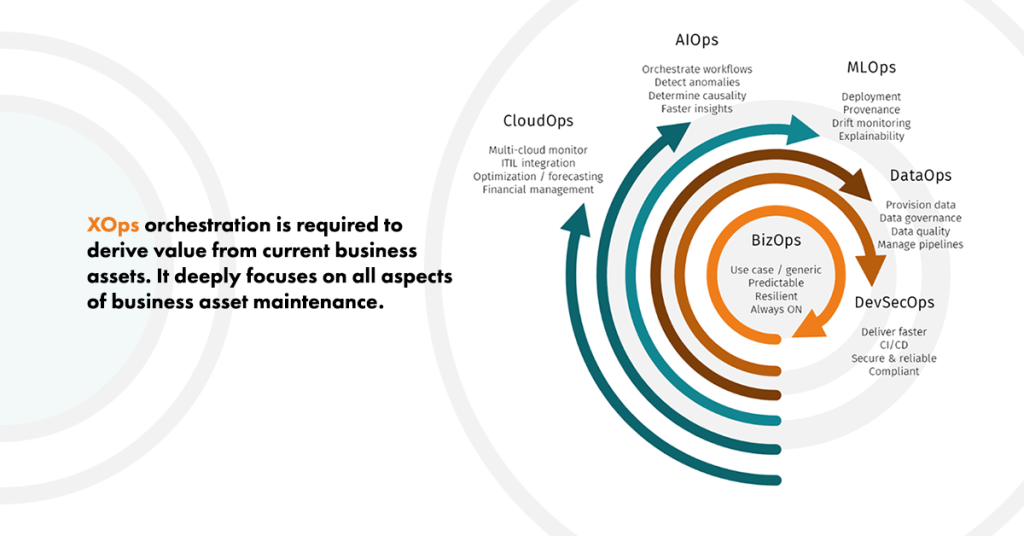
What is XOps?
XOps stands for “Extreme Operations” and refers to a set of practices and principles aimed at improving the efficiency, quality, and agility of a company’s operations. It combines the concepts of DevOps (Development Operations) and Site Reliability Engineering (SRE) to streamline and automate processes.
Why do We need XOps?
The need for XOps arises from the increasing complexity and scale of modern operations. With the growth of cloud computing, microservices architecture, and distributed systems, organizations must manage more resources and face higher demands. XOps offers a proactive and collaborative approach to overcome these challenges.
What is the Advantage of XOps?
The advantages of XOps include:
- Increased efficiency: XOps can help to break down silos and improve communication between different IT operations teams. This can lead to faster and more efficient problem resolution.
- Improved quality: XOps can help to improve the quality of IT services by ensuring that all teams are working together towards the same goals.
- Reduced costs: XOps can help to reduce costs by eliminating duplication of effort and by improving efficiency.
- Increased agility: XOps can help organizations to be more agile and responsive to change.
What is the feature of XOps?
The key features of XOps include:
- A focus on collaboration: XOps emphasizes the importance of collaboration between different IT operations teams.
- A focus on automation: XOps uses automation to improve efficiency and reduce errors.
- A focus on monitoring and analytics: XOps uses monitoring and analytics to identify and troubleshoot problems early.
- A focus on security: XOps takes security into account at all stages of the IT operations lifecycle.
What are the Top 10 Use Cases of XOps?
The top 10 use cases of XOps include:
- Cloud migration
- Application modernization
- Data analytics
- Artificial intelligence
- Machine learning
- Security operations
- Compliance
- IT infrastructure management
- IT service management
- DevOps
How to Implement XOps?
To implement XOps, organizations should follow these steps:
- Assess current processes and identify areas for improvement.
- Define clear goals and objectives for implementing XOps.
- Establish cross-functional teams and foster collaboration.
- Automate repetitive tasks and create a CI/CD pipeline.
- Adopt infrastructure as code practices and use configuration management tools.
- Implement monitoring and logging solutions to ensure visibility.
- Apply security practices and implement compliance measures.
- Continuously iterate and improve processes based on feedback and data.
How to Get Certified in XOps?
There are a number of certifications available for XOps professionals. Some of the most popular certifications include:
- Certified XOps Engineer (CXOE)
- Certified XOps Architect (CXOA)
- Certified XOps Manager (CXOM)
- Certified XOps Consultant (CXOC)
These certifications can help to demonstrate your skills and knowledge in XOps and can make you more marketable to potential employers.
Here are some most popular website for providing Certification courses: DevOpsSchool.com , scmGalaxy.com , BestDevOps.com , Cotocus.com
How to Learn XOps?
There are a number of ways to learn XOps. Some of the most popular methods include:
- Taking online courses
- Reading books and articles
- Attending conferences and workshops
- Getting hands-on experience
Here are some most popular website for providing Certification courses: DevOpsSchool.com , scmGalaxy.com , BestDevOps.com , Cotocus.com